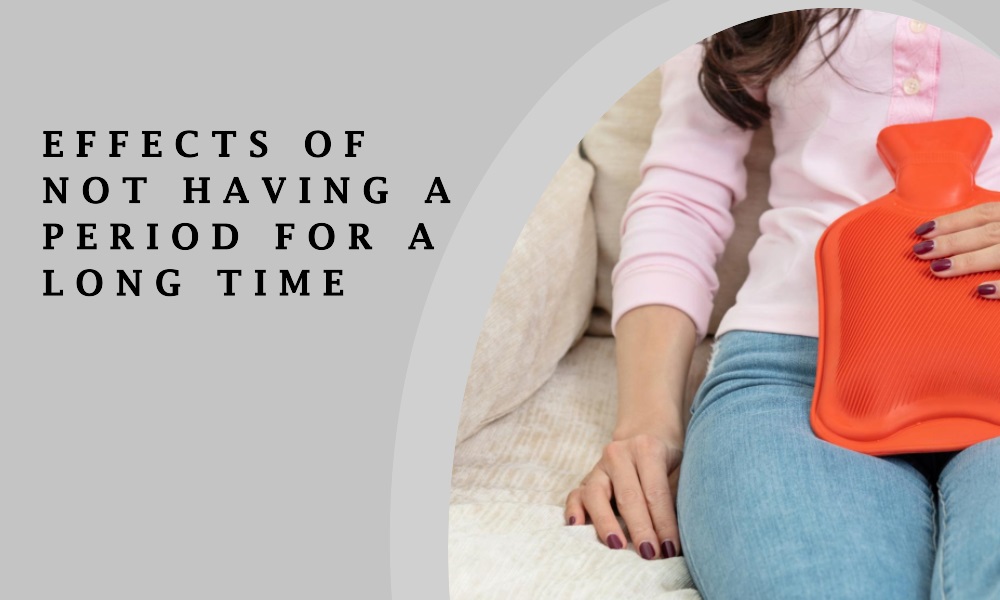Menstruation is a natural process in a woman’s body, serving as a monthly indication that pregnancy hasn’t occurred. However, there are times in a woman’s life when she might not have her period. This condition, known as amenorrhea, can stem from various reasons and can have numerous effects on the body.
What is Amenorrhea?
Amenorrhea is the medical term for an absence of menstrual periods. There are two main types:
- Primary Amenorrhea: When a girl hasn’t started menstruating by the age of 16.
- Secondary Amenorrhea: When a woman who has been regularly menstruating stops having monthly cycles for three or more months.
Common Causes of Amenorrhea
Several factors can contribute to the absence of menstruation, including:
- Hormonal imbalances: Conditions like polycystic ovary syndrome (PCOS), thyroid malfunction, or pituitary tumors.
- Weight issues: Being significantly underweight or overweight can affect menstrual cycles.
- Medications: Some medications, especially hormonal therapies, can disrupt regular menstruation.
- Stress: Elevated stress levels can temporarily stop periods.
- Chronic diseases: Conditions like celiac disease can interfere with menstruation.
- Excessive exercise: Athletes and those who exercise vigorously might experience disruptions in their cycles.
Effects of Not Having a Period for an Extended Time
- Fertility issues: Consistent lack of menstruation can lead to anovulation (absence of ovulation), affecting fertility.
- Bone health: Estrogen, a hormone produced during the menstrual cycle, helps in bone strengthening. Reduced estrogen levels due to amenorrhea can increase the risk of osteoporosis.
- Cardiovascular problems: Amenorrhea-linked hormonal imbalances can elevate the risk of cardiovascular diseases.
- Emotional and psychological impacts: Irregularities in menstruation can lead to feelings of anxiety, sadness, or a sense of losing control over one’s body.
- Potential endometrial cancer: Long-term amenorrhea and anovulation can elevate the risk of endometrial cancer.
When to Seek Medical Advice
It’s essential to consult a healthcare provider if:
- You’ve missed three or more consecutive periods.
- You haven’t started menstruating by age 16.
- You experience other symptoms, like excessive hair growth, weight changes, or milky nipple discharge.
Treatment and Management
The treatment for amenorrhea varies depending on its cause:
- Balancing hormones: This might involve birth control pills, thyroid medications, or other hormone therapies.
- Lifestyle adjustments: Addressing stress, modifying exercise routines, or striving for a balanced weight can help.
- Surgery: In cases where tumors or cysts are the underlying causes.
FAQs
- Can pregnancy cause amenorrhea?
Yes, pregnancy is a primary natural cause of amenorrhea and should always be ruled out if a woman of reproductive age misses her period. - Is it normal for breastfeeding mothers to not have periods?
Many breastfeeding mothers may not menstruate for a while. It’s the body’s natural way of preventing back-to-back pregnancies. - How does menopause relate to amenorrhea?
Menopause, which typically occurs between ages 45-55, is the natural cessation of menstrual periods and is essentially a permanent form of amenorrhea. - Can periods return after a long absence?
Depending on the cause, periods can return, especially if triggered by lifestyle factors like stress or weight. - Are there health benefits to having a regular menstrual cycle?
Regular periods indicate a balanced level of hormones and proper functioning of the reproductive system. They can also help in the natural detoxification of the body.
Conclusion
While missing a period now and then is common, not having it for a long duration can have implications beyond just reproduction. Recognizing the signs and understanding potential causes is the first step towards ensuring one’s overall health and well-being.








Comments